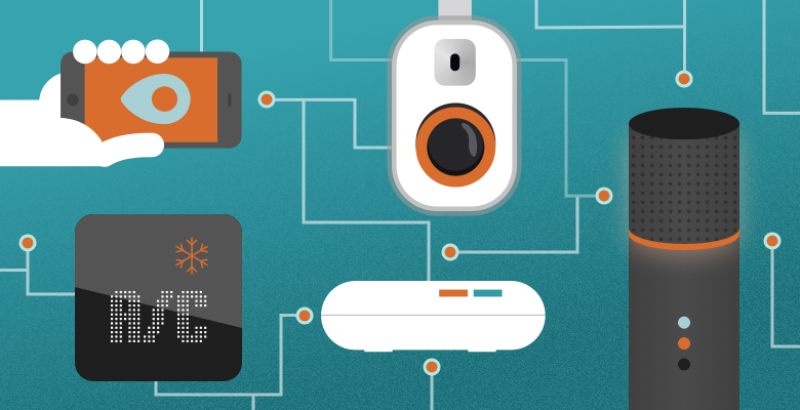
In the News
The Internet of Insecure Things
Although a huge 87% of people reportedly don’t know what the Internet of Things is, it’s safe to say that percentage will be decreasing soon. As described by USA Today, the IoT “simply means that an object has sensors embedded in it and the ability to send the data it collects outward, usually via Wi-Fi or the Internet.”
With more devices connected than ever, the IoT is continually expanding. This year’s CES was an indicator of that, as connected devices were a huge topic at the event. With all these new devices and so much data collection and transmission, the IoT also brings many privacy risks.
As reported in US News, “the so-called Internet of Things ecosystem will enable computer hackers to do physical damage through those connected devices.” It’s also been reported that many devices include little to no privacy safeguards and settings, with popular devices like the Nest and Belkin WeMo Switch especially vulnerable. Many experts warn that both devices and networks need to be more secure to account for the expanding IoT. There are also concerns about how data collected from the IoT is used, sold and shared.
A recent ZDNet article reported that the US intelligence chief believes the IoT “could lead to widespread vulnerabilities in civilian infrastructures and US government systems.” This came out of a threat assessment that was delivered to the US Senate Armed Services Committee in early February. He also stated, “In the future, intelligence services might use the IoT for identification, surveillance, monitoring, location tracking, and targeting for recruitment, or to gain access to networks or user credentials.” The report also included examples of how devices like TVs, baby monitors and home automation products could potential be used to conduct surveillance.
The IoT became even scarier recently, when Shodan, a search engine for the IoT, was highlighted in the news. As described by Vocativ, “Shodan is a website that scans the internet for publicly accessible devices and captures their IP addresses—creating a searchable index that includes everything from in-home surveillance cameras to traffic lights to fetal heart monitors to power switches for hospitals. Essentially any of the so-called Internet of Things that doesn’t have a password is up for grabs, and that’s more devices than you’d think.” Meaning users can browse vulnerable webcams, then log into these web cameras and view whatever they are recording. This is, obviously, a huge and particularity alarming privacy violation that’s come as a result of the IoT.
So what can you do?
As with many privacy-related issues, the very first step is awareness. It’s important to be aware of your connected devices, how they work and what vulnerabilities they might introduce. Once you understand the risks, you can work to make better-informed decisions about using these devices.
Another thing you can do is use a VPN to encrypt the Internet connection of your home network, and in doing so protect the connected devices in it. VyprVPN Router can help you achieve this, and you can learn more here.
Learn more about the IoT, Shodan and your privacy in the sources listed below.
Sources: Ars Technica, US News, Vocativ, USA Today.

